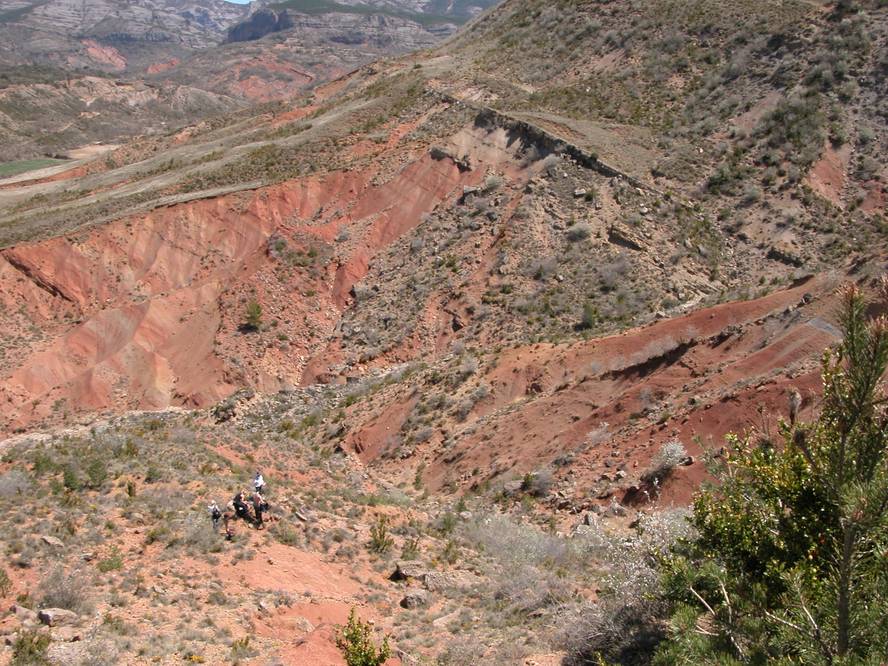The decline in sea level did not result in global warming of 56 million years

56 million years ago the global temperature increased between 5 and 9 °C in a geologically short stretch: It lasted 200,000 years and had a great ecological impact on animals and plants. So far, the cause of warming has been considered to be a spectacular fall in sea level. According to this hypothesis, sediments submerged in the sea were exposed when sea level decreased and were responsible for CO2 emissions.
Now, a study by the UPV Paleogen Research Group has ruled out this hypothesis. The sea receded — it is estimated that it had dropped about 20 meters — but researchers have ruled out that this would cause greenhouse gas emissions. “They occur at the same time, but there is no cause-effect relationship,” said Victoriano Pujalt, professor and principal investigator of the Department of Stratigraphy and Paleontology at UPV: “We question that this decline was the cause of warming, although it may have contributed.”
To draw this conclusion, the team of paleontologists and sedimentologists has studied the rocks of the Paleoceno-Eocene in the Pyrenees, between Huesca and Lleida, specifically in the Tremp-Graus basin and also in Zumaia. The heating was recorded in the rocks and stable isotopes of oxygen and carbon have been studied in them. The oxygen isotopes report on the temperature of the paleotene and the depth in which the sample was found, while the carbon isotopes provide data on the variations of CO2 content in the atmosphere and in the oceans.
The current global warming process has intensified the scientific community's interest in geological records, which constitute a relevant information file to understand the physical and ecological effects of the climate changes of yesteryear. The study was published in the journal Palaeogeography, Palaeoclimatology, Palaeoecology.





